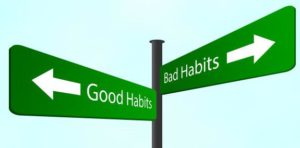Setting Boundaries #3: People
By Kevin Leapley, MA, LPC, CSAT on Monday, January 12th, 2015 in Sexual Addiction. No Comments
 People Boundaries
People Boundaries
In our past acting out we have established relationships with people that encouraged our destructive lifestyle. Sex addicts will often make connections with other sex addicts and sex addiction group recovery may require that you give up those relationships (at least for the first year of recovery). You may even look at your group of friends and say, “All my friends are sex addicts. Do I need to stay away from all my friends?” Unfortunately the answer to that question may be “yes”.
Changing Direction
Recovery is a change of life direction. Similar to an alcoholic having to eliminate former drinking buddies, the sex addict will need to eliminate former “lusting” buddies or partners. Hopefully, not all your friends are unhealthy sexually. If any friends are unhealthy, then it will be better to lose them then to continue living a life full of shame, despair, broken relationships, false intimacy, and addicted to sex.
Boundary Questions
To determine boundaries around people, the following questions may help you decide whether a person should be on your list or not:
- Have you ever sexually acted out with this person? (i.e., affair, gone to strip clubs with, borrowed porn from this person, been encouraged to act out with others, etc.)
- Are you sexually fantasizing about this person?
- Does this person have a lifestyle that promotes sex addiction? (i.e., views porn, cheats on his spouse/partner, uses sexual humor, sends sexual emails, etc.)
- Do you think this person is a sex addict?
- Do I fear relapse by being with this person?
- Are you grooming this person for sex?
- Have you ever visited places with this person that are now listed on your “Places” boundary list?
- What does your spouse/partner think of this person? Does she worry about your recovery when you are around this person?
In the lines below, make a list of all people that you answered “yes” to the above eight questions. Share this list with your spouse, partner, group, sponsor, and therapist.
People I will avoid during my first year of recovery:
__________________________________________________________________________________________________________________________________________________________________________________________________________________________________________________________________________________________________________________
Kevin Leapley, MA, LPC, CSAT
Latest posts by Kevin Leapley, MA, LPC, CSAT (see all)
- Relationship Panic & Attachment - September 18, 2018
- Anger Management Coping - January 22, 2017
- How Do People Behave In Anger - December 31, 2016
- Anger Management Distortions: Overgeneralization - December 3, 2016
- Two Basic Traits That Help Relationships Last - November 22, 2016
 People Boundaries
People Boundaries